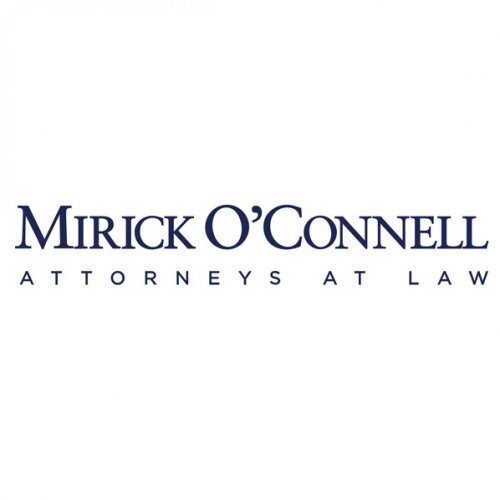Best Adoption Lawyers in United States
Share your needs with us, get contacted by law firms.
Free. Takes 2 min.
Free Guide to Hiring a Family Lawyer
Or refine your search by selecting a city:
List of the best lawyers in United States
About Adoption Law in United States
Adoption in the United States is a legal process where an individual or couple assumes parental responsibility for a child not born to them, thereby permanently transferring all rights and responsibilities from the child's biological parents to the adoptive parents. Adoption aims to provide a stable family environment for children who cannot be raised by their birth parents. U.S. adoption law is governed by both federal and state statutes, with varying requirements and processes depending on the type of adoption, such as domestic or international adoption, and specific state laws.
Why You May Need a Lawyer
There are several reasons why individuals involved in the adoption process may require legal assistance. These include understanding and navigating complex legal procedures, ensuring compliance with state and federal laws, handling the paperwork, representing adoptive parents in the event of disputes or complications, and providing guidance in situations involving birth parents’ rights or contested adoptions. Legal expertise is often crucial to ensure the adoption process is conducted smoothly and lawfully.
Local Laws Overview
Adoption laws vary significantly across states in the U.S., though some common aspects include the age and relationship requirements of adoptive parents, consent needed from the child’s biological parents, home study assessments, and background checks. Interstate adoption must comply with the Interstate Compact on the Placement of Children (ICPC) to ensure consistent procedures across state lines. It's important for prospective adoptive parents to be familiar with the specific laws of their state, as well as any federal regulations that may impact their adoption proceedings.
Frequently Asked Questions
1. What are the types of adoption available in the U.S.?
In the U.S., adoption can be categorized into several types including domestic infant adoption, foster care adoption, step-parent adoption, and international adoption from other countries.
2. How long does the adoption process take?
The length of the adoption process can vary widely, ranging from a few months to several years, depending on the type of adoption and the specific circumstances involved.
3. Is a home study required in every adoption case?
Yes, a home study is generally required to ensure the adoptive home meets specific standards and to assess the suitability of adoptive parents.
4. What is the cost of adoption?
Costs can vary significantly depending on the type of adoption, with private domestic adoptions typically being more expensive than adopting from foster care. International adoptions may also incur higher costs.
5. Can birth parents regain custody after adoption?
Once an adoption is finalized, it is generally irreversible, and birth parents lose all legal rights to the child unless the adoption is challenged in court and successfully overturned, which is rare.
6. Are single individuals allowed to adopt?
Yes, single individuals can adopt in the United States. However, regulations may vary from state to state regarding specific eligibility requirements.
7. What is open adoption?
Open adoption is an arrangement that allows for some form of contact or communication between the adoptive family and the birth parents, which may include visiting or sharing personal information.
8. How are the rights of adoptive parents protected?
Once the adoption is finalized, adoptive parents have the same rights and responsibilities as biological parents, protected under both state and federal law.
9. What is the role of adoption agencies?
Adoption agencies assist with matching prospective parents with children, conducting home studies, preparing necessary documentation, and providing counseling and support throughout the adoption process.
10. What are the legal prerequisites for international adoption?
International adoption requires compliance with both U.S. immigration law and the adoption laws of the child's home country, often involving additional documentation and legal processes.
Additional Resources
For those seeking more information or assistance with adoption, several resources are available, including the following:
- U.S. Department of Health & Human Services - Child Welfare Information Gateway
- The National Council For Adoption
- State Department’s Intercountry Adoption page
- Adoptive Families Magazine
- Local family law attorneys specializing in adoption
Next Steps
If you need legal assistance in the adoption process, consider taking the following steps:
- Research and understand the specific adoption processes and legal requirements applicable in your state.
- Consult with a family law attorney who specializes in adoption to understand your rights and responsibilities.
- Prepare necessary documentation and comply with home study assessments and background checks.
- Engage with a reputable adoption agency to guide you through the official procedures.
- Be proactive in addressing any legal questions or concerns with your legal advisor to ensure a smooth adoption process.
Lawzana helps you find the best lawyers and law firms in United States through a curated and pre-screened list of qualified legal professionals. Our platform offers rankings and detailed profiles of attorneys and law firms, allowing you to compare based on practice areas, including Adoption, experience, and client feedback.
Each profile includes a description of the firm's areas of practice, client reviews, team members and partners, year of establishment, spoken languages, office locations, contact information, social media presence, and any published articles or resources. Most firms on our platform speak English and are experienced in both local and international legal matters.
Get a quote from top-rated law firms in United States — quickly, securely, and without unnecessary hassle.
Disclaimer:
The information provided on this page is for general informational purposes only and does not constitute legal advice. While we strive to ensure the accuracy and relevance of the content, legal information may change over time, and interpretations of the law can vary. You should always consult with a qualified legal professional for advice specific to your situation.
We disclaim all liability for actions taken or not taken based on the content of this page. If you believe any information is incorrect or outdated, please contact us, and we will review and update it where appropriate.
Browse adoption law firms by state in United States
Refine your search by selecting a state.















